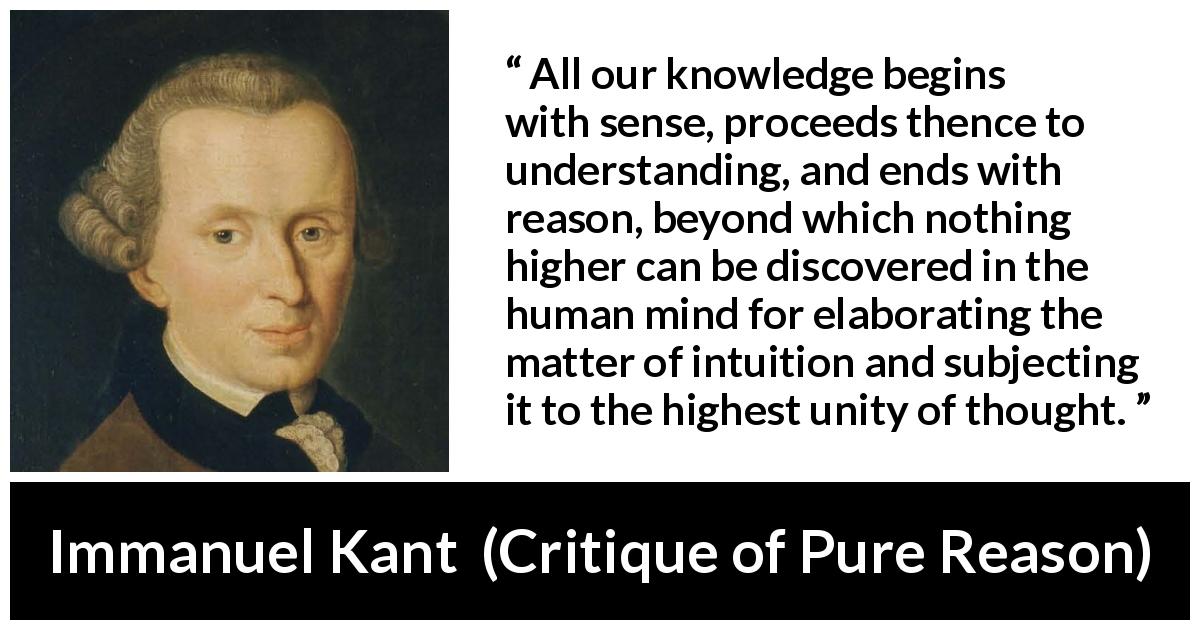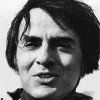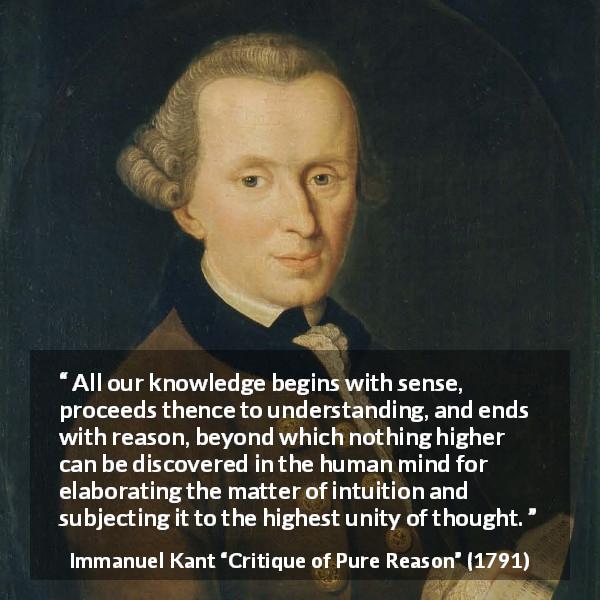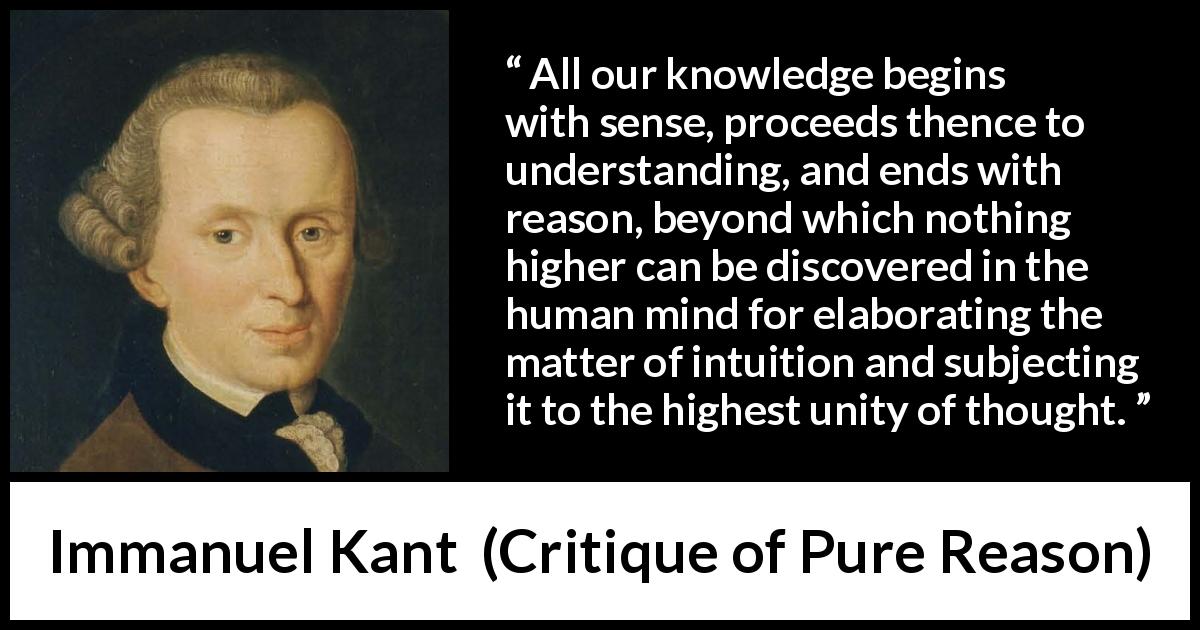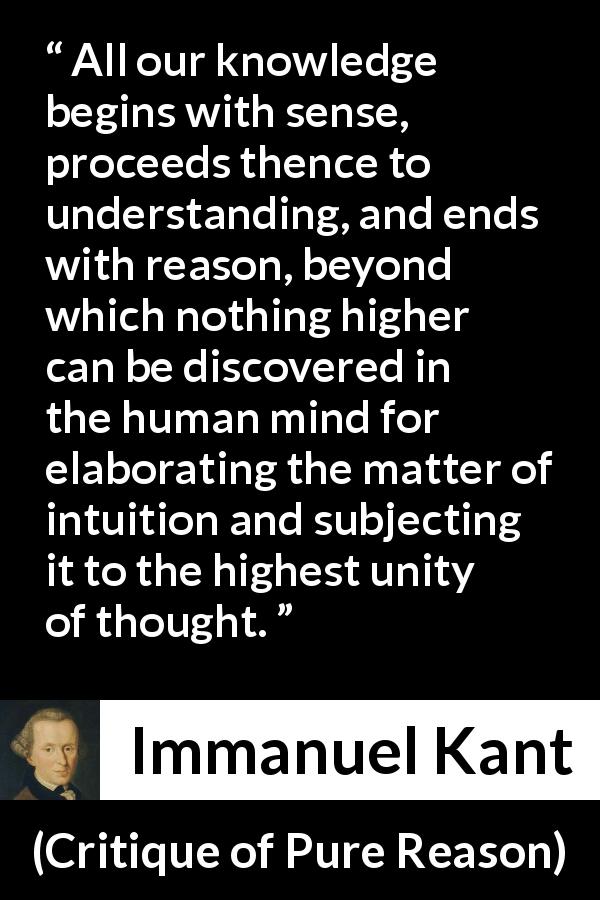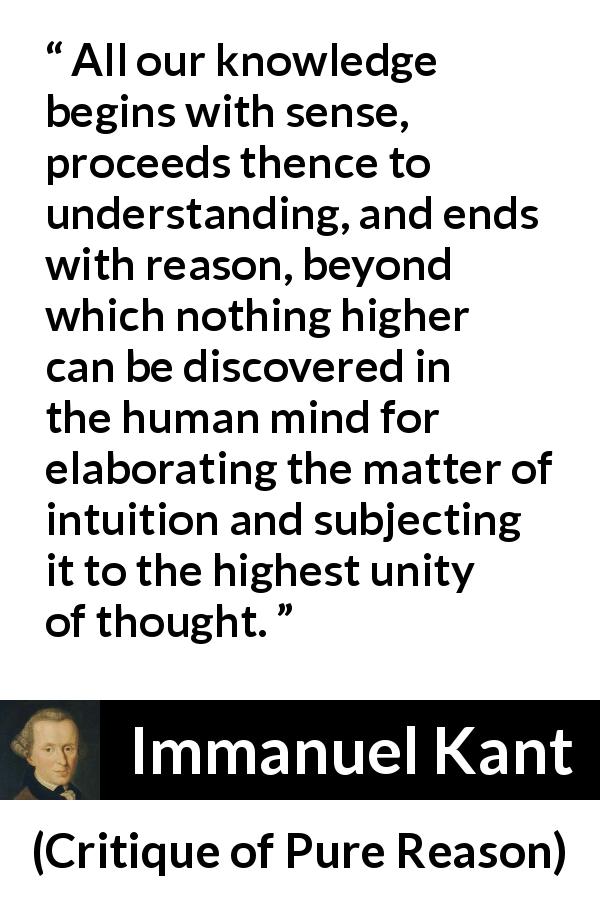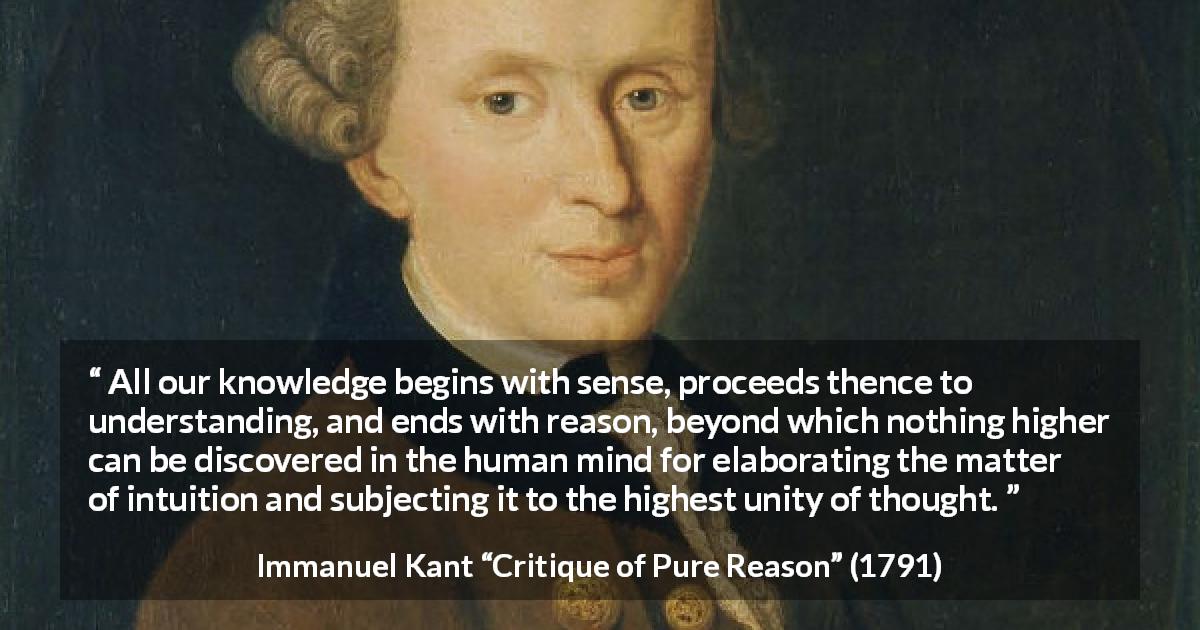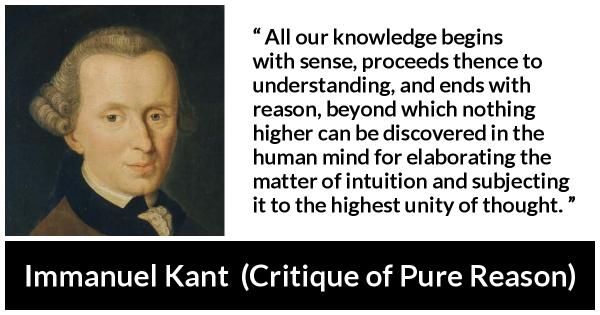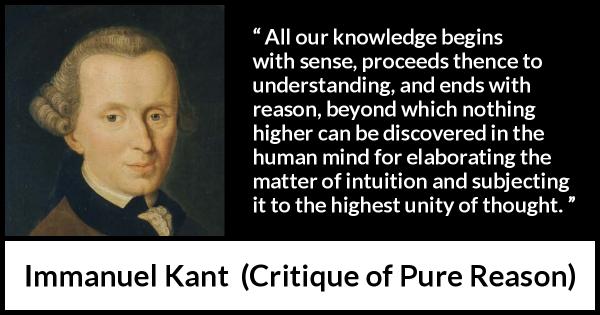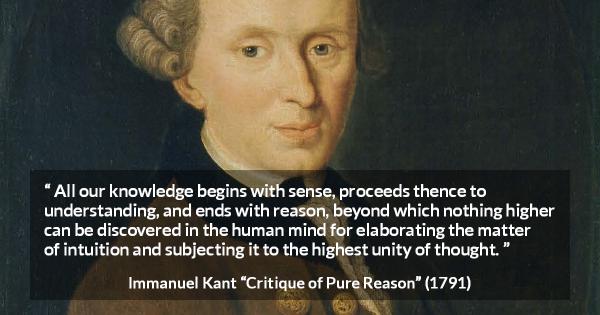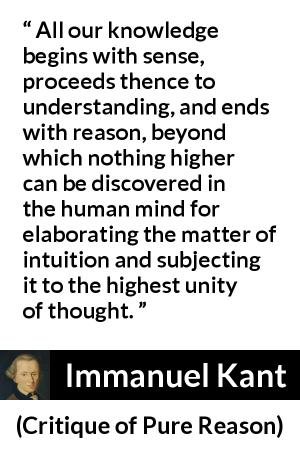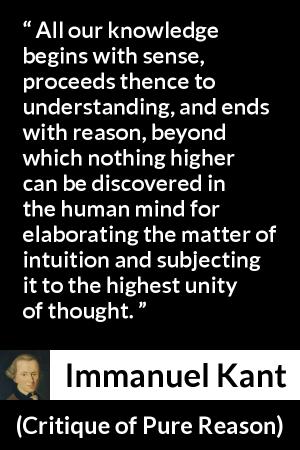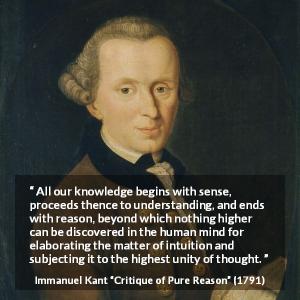“ All our knowledge begins with sense, proceeds thence to understanding, and ends with reason, beyond which nothing higher can be discovered in the human mind for elaborating the matter of intuition and subjecting it to the highest unity of thought. ”
Immanuel Kant, Critique of Pure Reason (1791). copy citation
| Author | Immanuel Kant |
|---|---|
| Source | Critique of Pure Reason |
| Topic | reason knowledge understanding senses |
| Date | 1791 |
| Language | English |
| Reference | |
| Note | Translated by J. M. D. Meiklejohn |
| Weblink | http://www.gutenberg.org/files/4280/4280-h/4280-h.htm |
Context
“There is, therefore, a natural and unavoidable dialectic of pure reason—not that in which the bungler, from want of the requisite knowledge, involves himself, nor that which the sophist devises for the purpose of misleading, but that which is an inseparable adjunct of human reason, and which, even after its illusions have been exposed, does not cease to deceive, and continually to lead reason into momentary errors, which it becomes necessary continually to remove.
II. Of Pure Reason as the Seat of Transcendental Illusory Appearance
A. OF REASON IN GENERAL.
All our knowledge begins with sense, proceeds thence to understanding, and ends with reason, beyond which nothing higher can be discovered in the human mind for elaborating the matter of intuition and subjecting it to the highest unity of thought. At this stage of our inquiry it is my duty to give an explanation of this, the highest faculty of cognition, and I confess I find myself here in some difficulty. Of reason, as of the understanding, there is a merely formal, that is, logical use, in which it makes abstraction of all content of cognition; but there is also a real use, inasmuch as it contains in itself the source of certain conceptions and principles, which it does not borrow either from the senses or the understanding.” source
II. Of Pure Reason as the Seat of Transcendental Illusory Appearance
A. OF REASON IN GENERAL.
All our knowledge begins with sense, proceeds thence to understanding, and ends with reason, beyond which nothing higher can be discovered in the human mind for elaborating the matter of intuition and subjecting it to the highest unity of thought. At this stage of our inquiry it is my duty to give an explanation of this, the highest faculty of cognition, and I confess I find myself here in some difficulty. Of reason, as of the understanding, there is a merely formal, that is, logical use, in which it makes abstraction of all content of cognition; but there is also a real use, inasmuch as it contains in itself the source of certain conceptions and principles, which it does not borrow either from the senses or the understanding.” source
